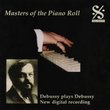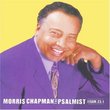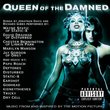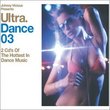| All Artists: Brahms, King, Benson Title: Clarinet Sonatas 1 & 2 Members Wishing: 0 Total Copies: 0 Label: Hyperion UK Release Date: 11/12/1993 Album Type: Import Genre: Classical Styles: Chamber Music, Historical Periods, Classical (c.1770-1830), Instruments, Reeds & Winds Number of Discs: 1 SwapaCD Credits: 1 UPC: 034571162027 |
Search - Brahms, King, Benson :: Clarinet Sonatas 1 & 2
CD DetailsSimilar CDs
Similarly Requested CDs
|
CD ReviewsTWILIGHT ZONE DAVID BRYSON | Glossop Derbyshire England | 01/23/2005 (5 out of 5 stars) "Assuming a reasonable price-tag, I can give this disc 5 stars. At 43 minutes' playing-time it couldn't be described as astoundingly well filled. There would have been space for the clarinet trio as well, which I see is available from the same artists on a disc with the clarinet quintet.
Brahms issued his sonatas op 120 in two separate editions, one for clarinet one for viola. A very recent live performance of the first by the principal clarinet of one of the world's greatest orchestras is still fresh in my mind, and I can report without hesitation that this account by Thea King is far better. Late Brahms has a twilight feel about it, although I believe this composer's musical gift, like Bach's or Mozart's or Schubert's, was more or less infinite and that he would have gone on composing, doubtless with a great deal of grumbling, if he had lived to be 80. These performances capture the sense of the two works as I understand it. There is still plenty of power in them as well as the autumnal feel, witness some hefty writing for the piano in the two first movements in particular. Thea King's tone is clean and precise rather than outstandingly warm or seductive, but if that is any kind of fault at all for me it's a fault of the right kind in this music. Nothing is done the wrong way so far as I'm concerned, although I might have welcomed a bit more heartfelt Brahmsian lyricism from Benson in the trio section in the middle movement of the E flat. It crossed my mind that it would be interesting to hear Kissin play that, but this was pure fancy on my part, and for all I know it might be pure illusion too. One important test for me is that the fast movements should be kept moving and not allowed to sag. The closing vivace of the F minor passes this test with flying colours, and so does the allegretto preceding it, where I particularly enjoyed the warmth of the players' tone. The recorded tone is very faithful and good, if not exactly spectacular. The liner note is of a kind with which I'm wearily familiar - the sentiments are vague and conventional, and the music under discussion might be more or less anything. The performance is the thing that matters. To me this is something like a textbook example of how it ought to go." |











